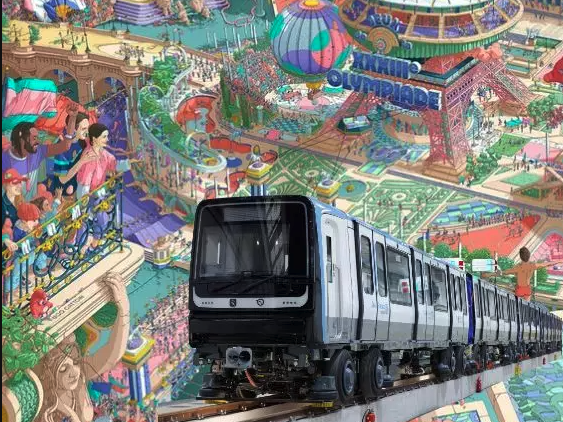BBC News reports that unless workers start commuting by train again, there could be long-term adverse effects on city centre traffic jams, pollution and high street business closures, who rely on the rush of commuters to boost sales.
According to the Rail Delivery Group (RDG), train commuting is only sitting at 33% of its pre COVID rates, whereas car journeys have reached pre pandemic levels. The low train commuting uptake and increased car journeys could see cities congestion double and more businesses big and small close their doors. An example of how reduced train travel influences the economy, WPI Economics reported that commuters pre COVID spent £30 billion a year on food, drink, shopping and entertainment. By encouraging people to take the train for their commute, we are helping build back the economy, reducing carbon emissions by reducing traffic jams in cities and supporting businesses.
An example of how reduced train travel influences the economy, WPI Economics reported that commuters pre COVID spent £30 billion a year on food, drink, shopping and entertainment. By encouraging people to take the train for their commute, we are helping build back the economy, reducing carbon emissions by reducing traffic jams in cities and supporting businesses.
The low uptake of train commuting is due to many factors, like public hesitancy and hybrid working models allowing staff to work from home several days per week, automatically reducing the commuting journeys. Another reason is due to the Government’s ‘work from home order’ had a ripple effect on where people wanted to live. As people were no longer required to be in an office 5 days per week, many moved away from city centres to less populated areas which allowed them more space. This move also meant distancing themselves from train and tube stations. Now with the encouraged ‘return to office’ message, people who have moved away from public transport are left without an option but to drive to work.
Rail Delivery Group (RDG) said:When people take the train, it’s more than a journey – it will impact the future of thousands of small businesses, local air quality and the government’s net zero ambitions.
In March 2020, companies had to adapt to function and support their staff to work remotely. For many companies, employees have proven productivity working from home, therefore a hybrid working model future is undoubtedly the way forward and here to stay. With this in mind, will commuting figures recorded in 2019 ever return?
In an attempt to boost numbers and to support a hybrid working model, the introduction of Flexi Season tickets has been rolled out to the public. The Flexi tickets provide a discount for commuters travelling into the office two or three days a week. However, the Guardian reports that the discount is minuscule. One Brighton commuter told the publication he would be better off buying existing tickets for his trips, while others have calculated they would save only £7 a year. Unlike standard season tickets, flexi tickets are not available in first class and cannot be used on Transport for London services, so commuters will incur another cost on arrival. There is also no cheaper off-peak option, so they will only be useful to those commuting at peak times.
Alice Ridley of Campaign for Better Transport insinuated that the Flexi discounts need to be greater to encourage more passengers.
Alice Ridley continued by saying:There’s a danger that people will change the way they commute and start driving, and we wanted flexible tickets to encourage people back onboard trains. We don’t think these tickets are going to do that or provide the savings that people had hoped for.
National Rail is currently running a campaign with the slogan “lets get back on track”. The campaign is meant to celebrate rail’s role in connecting people to places and the things they love the most. Highlighting people taking different journeys such as going to the countryside, seeing grandchildren for the first time or going ‘out out’ with friends. The campaign is meant to spark an emotion and drive consideration of train travel.
The Marketing Strategy Director at Rail Delivery Group explains:Rail is fundamental to helping people reconnect whilst also at the centre of the country’s economic recovery from the pandemic, which is why the industry has come together to develop a national emotionally-engaging campaign to drive consideration of train travel and re-connect the UK.
This article was originally published by CTM powered by Sopra Steria.




